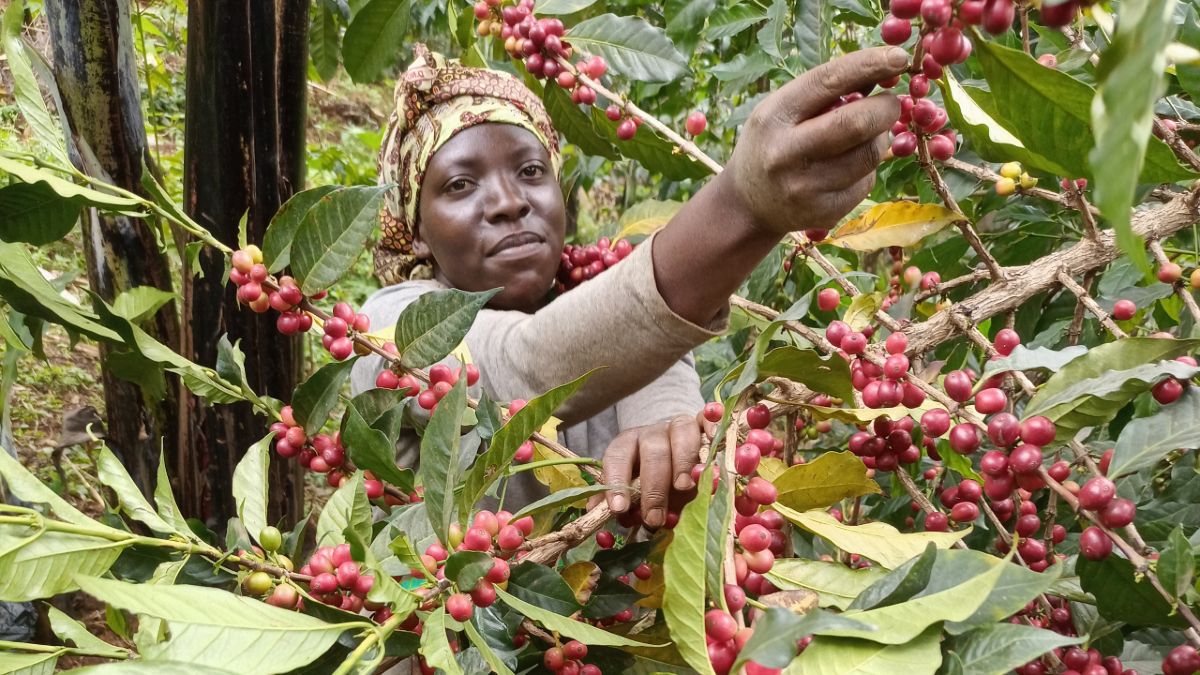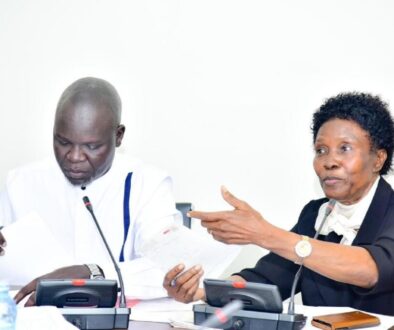Farmers concerned over EU Coffee deadline

A coffee farmer in her garden
By Our reporter
Mbale coffee farmer Patrick Nayumu Akabu has expressed confusion and frustration over the ongoing European Union Deforestation Regulation (EUDR) compliance process.
Speaking about farmer registration in some coffee-growing areas, Nayumu noted that unclear communication and limited sensitization are leaving many producers uncertain about the steps they need to take. He also emphasized the importance of environmental conservation, such as tree planting and protecting natural habitats, in meeting EUDR requirements.
The country was recently classified as a “Standard Risk” under the EUDR, meaning it must meet full due diligence requirements compared to lower-risk neighbors.
Civil society actors, including Jane Nalunga, Executive Director of SEATINI Uganda, have called for investments in alternative markets, warning that smallholder farmers could bear the brunt of compliance costs despite not being significant contributors to global deforestation.
“Our challenge with the EU deal is an imposition. It penalizes small-scale producers who never caused the climate crisis,” Nalunga said during a Multi-Stakeholder Dialogue held in Kampala on Aug.12, organized by SEATINI. She urged for more district- and sub-county-level engagements to ensure farmers understand the implications and opportunities of EUDR compliance.
Research Assistant at Makerere University, Irene Nakamatte highlights additional concerns among smallholder farmers, who often perceive traceability requirements as surveillance or potential taxation rather than a market advantage. Limited awareness of fair trade schemes and certifications also constrains participation, and there is a risk that large producers could dominate the compliance process, sidelining smaller farmers.
From a regulatory perspective, government officials are working to ease the process. Georgina Mugerwa, acting assistant commissioner at the Ministry of Trade, emphasized initiatives such as simplified customs procedures, the electronic single window platform, and innovative African Development Bank financing to support SMEs in the coffee value chain. She also stressed the need for coordinated national and regional efforts, harmonized standards, and enhanced value addition to capture premium prices for African producers.
Herbert Kafeero, programs and communications manager at SEATINI Uganda, pointed out gaps in technical, financial, and informational resources, including the need for clarity on data ownership and a robust national traceability system. He warned that meeting EUDR requirements is a complex task that requires multi-level coordination.
Reuben Keimusya, assistant commissioner for Coffee Production at the Ministry of Agriculture, Animal Industry and Fisheries (MAAIF), noted that Uganda aims to meet the EU compliance deadline ahead of schedule.
While the official deadline for SMEs is June 2026, the government plans to ensure exporters are ready by October 15, 2025, accounting for the 45-60 days required to transport coffee from Mombasa Port to European markets.
Keimusya revealed that Uganda exported 7.8 million bags of coffee valued at US$2.2 billion between June 2024 and June 2025, with 65-70% destined for the EU. The country is targeting registration of 2.5 to 3 million traceable coffee farm polygons, though only 1.5 million have been mapped so far.
Challenges persist due to the large number of farmers, limited institutional coordination, and gaps in national policies that align with EUDR requirements. Keimusya stressed that while Uganda has strong climate and forest conservation laws, explicit provisions for EUDR compliance, such as timelines for deforestation, remain absent. “We need to work with different government agencies to ensure alignment,” he said.
As Uganda races to meet EUDR deadlines, smallholder farmers like Nayumu will be closely watching whether national and regional efforts translate into practical support on the ground, safeguarding both livelihoods and the country’s status as a major coffee exporter.


